

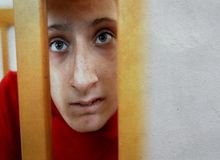
This isn’t anything to do with the war, other than that the number of ‘inmates’ has increased. This is the legacy of the old soviet system. We have to do something.
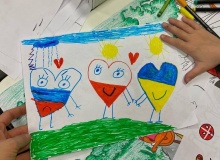
“The majority of refugee aid in Poland is provided by churches. If they weren't so committed to, the aid would have collapsed long ago”, a pastor says. An article by Johannes Reimer and Manuel Böhm.
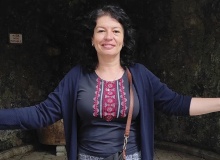
Ukrainian missionary Mariana Laskava talks about her experience of leaving Kiev and continue serving refugees. “Every opportunity is used to preach the gospel”.
.jpg)
New Life Radio in Odessa laments new laws restricting freedom of the press. The team had to start broadcasting from Romania after the Russian invasion.
.jpg)
“When all these advocates get together in one place, it facilitates collaboration that can actually make a difference to people on the ground”, said Janet Epp Buckingham.
The organisation is flexing its muscles after the Madrid summit and announces the expansion of its borders and greater militarisation. Voices from the Evangelical and Protestant spheres analyse the new scenario.
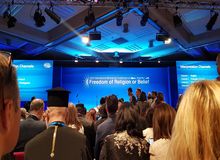
The International Ministerial on Freedom of Religion or Belief says it aims to “tackle online harm and strengthen human rights education”. Evangelicals say “words must be matched with action”.
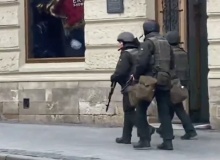
“Pray for Ukrainian churches so that they become a center of great revival in Europe”.
.jpg)
The city of Bucha near Kyiv in Ukraine hit the headlines when horrific scenes of bodies on the streets were reported as a massacre following the invasion of Russian troops. One place that has remained a lifeline to those devastated by this tragedy is Bucha Baptist Church. As a result of their practical and spiritual ministry to the community their services are full to capacity every week. Miraculously the building is still standing despite missiles narrowly missing the church.
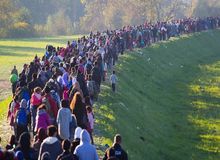
The ministry of hospitality brings comfort, peace and hope to the heart, mind and soul of those who have been uprooted.
.jpg)
Tabor is the word for Roma camps in the local Romani language. Elena Marchuk started this project in 2013 and today there are more than 500 programs produced.
.jpg)
While the UK imposes sanctions on Patriarch Kirill for supporting the war in Ukraine, the World Council of Churches rejects a ban and hopes to see “dialogue and encounter”.
.jpg)
Some countries, especially in Africa, depend on Ukrainian grain. Urgent measures need to be taken to avoid the catastrophic consequences of the war in Europe.
Evangelical churches acknowledge the serious refugee crisis but “continue to selflessly and tirelessly respond to the overwhelming needs around them”.
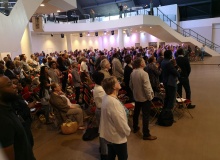
The main event was a congress that gathered over 300 people under the theme “Roots and zeal”. “We want to discern what God expects from us for the next years”.
.jpg)
June should have meant the start of the summer holidays for the young Ukrainians. But almost two out of every three children have been wrenched out of home, school and playground.
.jpg)
What makes African Christianity different from European Christianity? Where are African churches in Europe growing most and what can they offer to a secularised continent? An interview with the pastor and head of the One People Commission in the UK.
.jpg)
Both Ukrainian and Russian mothers have turned to magic and the occult and bought amulets, protection letters, special icons, to stave off evil forces and protect their sons fighting in the war.
.jpg)
In a context of the war in Ukraine and after two online conference, participants saw the week in Wisla as a chance to renew the gospel vision for Europe.
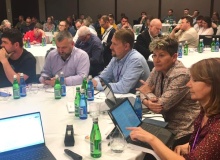
72 Christian leaders from 22 European countries gathered for 24 hours in Krakow focused on the Ukraine war and refugee crisis.

We can be caught up all too easily in the frantic rush and busyness of life. There is a better way, His way, through which He gives us opportunities to rest in Him and just ‘be’.
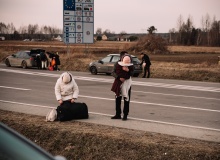
Refugee work must not deenergize Christians, the opposite is true, done properly it will lead to a deeper experience and generate more energy.
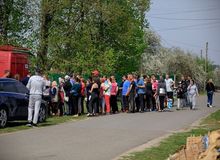
The volunteers who chose to stay in Ukraine encounter lines of grateful survivors anxious not only for food but also for Bibles and prayer.
.jpg)
Over 500 representatives of evangelical churches and organisations in Europe attend the European Leadership Forum conference in Poland. A pastor from Kyiv shared details about the response of Christians during the invasion.

The heart of the Ukranian Christian church missionary enterprise is to cross borders instead of erecting them and we in the rest of Europe must support them.

Las opiniones vertidas por nuestros colaboradores se realizan a nivel personal, pudiendo coincidir o no con la postura de la dirección de Protestante Digital.